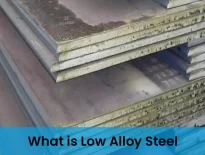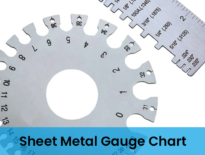SAE 8620 Alloy Steel (UNS G86200) – Equivalent, Chemical Composition, Properties, & Uses
SAE 8620 alloy steel is well-regarded for its strength, toughness, and wear resistance. This alloy is used extensively in industries like automotive, machinery, and defense for making parts that need durability and reliability. Its chemical makeup includes elements like carbon, chromium, nickel, and molybdenum, which contribute to its performance.
SAE 8620 can be heat-treated and machined for various applications, making it adaptable for gears, shafts, and other critical components. The alloy’s versatility and ability to withstand heavy stress make it a popular choice across multiple sectors.
What kind of applications are you looking into that may benefit from using SAE 8620 steel?
8620 Alloy Steel Chemical Composition
| Element | Content (%) |
| Iron, Fe | 96.895-98.02 |
| Manganese, Mn | 0.700-0.900 |
| Nickel, Ni | 0.400-0.700 |
| Chromium, Cr | 0.400-0.600 |
| Carbon, C | 0.180-0.230 |
| Silicon, Si | 0.150-0.350 |
| Molybdenum, Mo | 0.150-0.250 |
| Sulfur, S | ≤ 0.0400 |
| Phosphorous, P | ≤ 0.0350 |
SAE 8620 Alloy Steel Physical Properties
| Properties | Metric | Imperial |
| Density | 7.85 g/cm3 | 0.284 lb/in³ |
AISI 8620 Mechanical Properties
| Properties | Metric | Imperial |
| Tensile strength | 530 MPa | 76900 psi |
| Yield strength | 385 MPa | 55800 psi |
| Elastic modulus | 190-210 GPa | 27557-30458 ksi |
| Bulk modulus (typical for steel) | 140 GPa | 20300 ksi |
| Shear modulus (typical for steel) | 80 GPa | 11600 ksi |
| Poisson’s ratio | 0.27-0.30 | 0.27-0.30 |
| Izod Impact | 115 J | 84.8 ft.lb |
| Hardness, Brinell | 149 | 149 |
| Hardness, Knoop (converted from Brinell hardness) | 169 | 169 |
| Hardness, Rockwell B (converted from Brinell hardness) | 80 | 80 |
| Hardness, Vickers (converted from Brinell hardness) | 155 | 155 |
| Machinability (hot rolled and cold drawn, based on 100 machinability for AISI 1212 steel) | 65 | 65 |
SAE 8620 Thermal Properties
| Properties | Metric | Imperial |
| Thermal conductivity | 46.6 W/mK | 323 BTU in/hr.ft².°F |
SAE 8620 Steel Equivalent
| AISI 8620 | AMS 6274 | AMS 6276 | AMS 6277 | AMS 6375 | ASTM A29 |
| ASTM A322 | ASTM A331 | ASTM A506 | ASTM A507 | ASTM A513 | ASTM A519 |
| ASTM A646 | ASTM A752 | ASTM A829 | MIL S-8690 | SAE J1397 | SAE J404 |
| AFNOR 20 NCD 2 | AFNOR 22 NCD 2 | DIN 1.6523 | UNI 20 NiCrMo 2 | JIS SNCM 21 | JIS SNCM 21 H |
| B.S. 805 H 20 | B.S. 805 M 20 | AMS 6274G | AMS 6276C | AMS 6277A | ASTM A505 |
| MIL SPEC MIL-S-16974 | SAE J404 | SAE J770 |
AISI 8620 Steel Uses
AISI 8620 steel is a versatile alloy, commonly used in the automotive industry for parts like gears, shafts, camshafts, and crankshafts. It’s also employed in agricultural machinery and general engineering due to its wear resistance. This makes it ideal for components that undergo heavy stress, such as drive shafts, transmission cases, and axle housings.
SAE 8620 Corrosion Resistance
The high chromium content in AISI 8620 gives it excellent corrosion resistance, making it suitable for environments like marine settings or areas exposed to acid rain. It also resists oxidation at temperatures up to 650°F (343°C), making it a reliable option in high-heat applications.
AISI 8620 Heat Treatment
AISI 8620 can be heat-treated to adjust its mechanical properties. Quenching involves heating the steel and rapidly cooling it in oil or water for added strength. Normalizing, where the steel is cooled in air after heating, provides a more balanced structure. Heat treatment can produce tensile strengths ranging from 545 MPa to 795 MPa, depending on the method.
SAE 8620 Steel Machining
This alloy is easy to machine, thanks to its low carbon content and the presence of elements like molybdenum. It allows for precise machining, which is essential in industries like firearms and aerospace. The low sulfur content also helps reduce tool wear, making production more efficient and cost-effective.
Conclusion
AISI 8620 is a standout steel alloy known for its strength, hardness, and wear resistance. Its versatility makes it ideal for many industries, including automotive, agriculture, defense, aerospace, and marine. The alloy’s high chromium content provides excellent corrosion resistance, and its machinability allows for precise and efficient production with less tool wear. With proper heat treatment, AISI 8620 can achieve tensile strengths between 545 MPa and 795 MPa, making it a great choice for components that need high accuracy and durability. Overall, AISI 8620 is a reliable and high-performing steel for a wide range of applications.
FAQs
What is SAE 8620 material grade?
SAE 8620 is a case-hardening steel alloy containing chromium, nickel, and molybdenum. It offers good toughness, strength, and higher core strength compared to SAE 8615 and 8617 grades, making it suitable for wear-resistant applications.
What grade is SAE 8620 equivalent to?
SAE 8620 steel is equivalent to EN362 steel, which is its grade under the previous BS 970: 1955 standard.
What is 8620 steel good for?
8620 steel is commonly used for gears, cranks, shafts, axles, bushings, heavy-duty pins, bolts, springs, hand tools, and various machinery parts due to its toughness, strength, and wear resistance.


